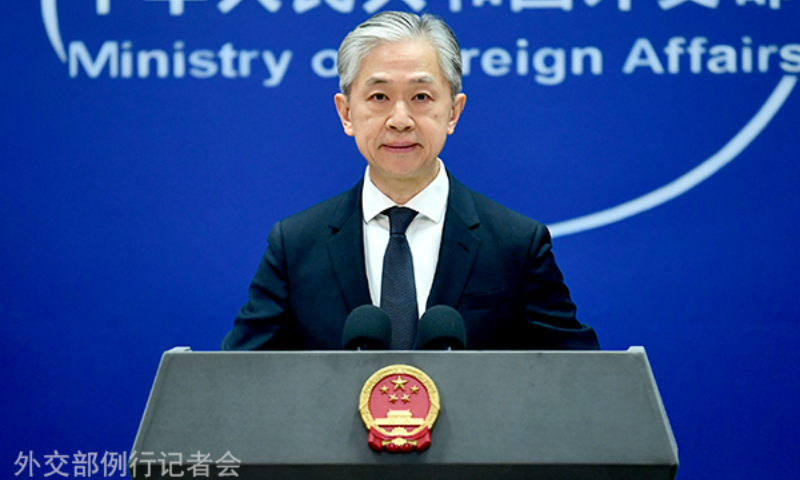
Foreign Ministry Spokesperson Wang Wenbin Photo: fmprc.gov.cn
China firmly opposes the so-called "overcapacity" hype by some Western countries, and the speculation is wholly unjustified, Chinese Foreign Ministry spokesperson Wang Wenbin said on Wednesday.
Wang stressed that the world doesn't want less of China's capacity, but more funding and products to speed up energy transition and reduce poverty.
Wang made the remarks at a regular press conference, commenting on the G7 Foreign Ministers' communiqué that highlighted concerns regarding China's "non-market policies and practices" that lead to "harmful overcapacity," as well as remarks by the US side suggesting that Secretary of State Antony Blinken will express concerns to the Chinese side regarding the issue during his visit to China.
China's industrial capacity for the new-energy sector is advanced capacity, which is urgently needed to promote green development, rather than excess capacity, Wang said. He said that the key problem worldwide is not "overcapacity" for the new-energy sector but a serious shortage.
China's green technology and products, especially the development of the new-energy industry, will make an important contribution to the global green and low-carbon transformation, as they tackle the needs of global economies to alleviate the energy crisis and cope with climate change, Wang noted.
In order to achieve carbon neutrality, global sales of new-energy vehicles will need to reach about 45 million by 2030, which would be 4.5 times the 2022 level. The demand for photovoltaic installations will need to grow significantly, Wang said, citing data from the International Energy Agency.
Wang said that the rapid development of China's new-energy industry is in line with economic laws and market principles, and is not the result of subsidies.
China's new-energy products have strong competitiveness, built on factors such as the early deployment of relevant industries, leading technological advancement through long-term research and development, and a super large-scale market, along with other advantages.
Labeling China's new-energy industry as suffering from "overcapacity" is a sign of protectionism, Wang said.
In the EV sector, the capacity usage rates of the majority of China's leading auto exporters are considered normal; the ratio of exports to production is far lower than other car producing nations such as Germany, Japan and the South Korea; and Chinese companies aren't dumping EVs on global markets, for the export prices of those cars reflect the laws of the market, Wang said.
The narrative of China's so-called "overcapacity" is just an excuse for protectionism, and restricting China's exports of new-energy products such as EVs will only result in a lose-lose situation, Wang said, urging relevant countries to provide Chinese enterprises with a fair, transparent, open and non-discriminatory business environment.
Against the backdrop of this round of Western smears, experts have repeatedly said that the "overcapacity" rhetoric is a false narrative.
China has played an active role in forming the capacity for the global new-energy sector, which has had a positive guiding effect on meeting the corresponding demand, Zhou Mi, a senior research fellow at the Chinese Academy of International Trade and Economic Cooperation, told the Global Times on Wednesday, noting that China's innovations will positively contribute to tackling global challenges rather than having a negative impact.
Zhou stressed the importance for all parties involved to participate in the improvement of the global supply chain, including US enterprises, as China has provided a fair and open business environment for global enterprises to operate.
Global Times




